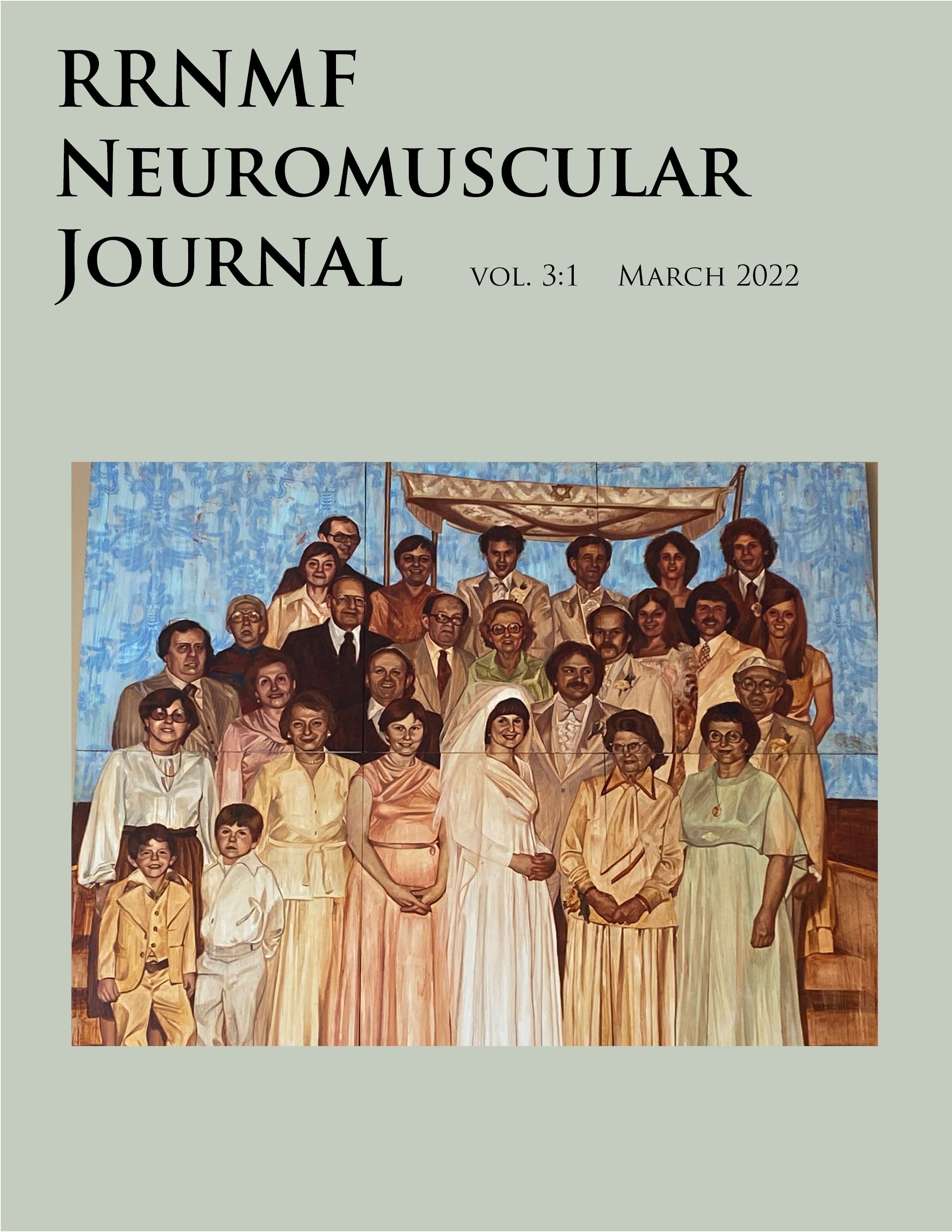Timing of Decremental Response During Repetitive Nerve Stimulation in Myasthenia Gravis
DOI:
https://doi.org/10.17161/rrnmf.v3i1.15216Abstract
Background: A decrement >10% detected during repetitive nerve stimulation (RNS) is supportive of considering a diagnosis of myasthenia gravis (MG). Several studies have found that most of this decrement is seen between 4 to 6 min post-exercise. However, there are not available studies analyzing if shorter timing would be sufficient.
Objective: The objective of this study was to evaluate if RNS up to 2 min post-exercise is sufficient to detect a decrement response >10%.
Methods: We performed a retrospective chart review study of patients referred to our neuromuscular clinic at The University of Kansas Medical Center with symptoms suggestive of MG from 2013 to 2017.
Results: A total of 76 patients with MG and 100 controls were identified. A significant decrement was detected in 95% of MG patients with abnormal RNS within 2 minutes post-exercise.
Conclusion: RNS up to 2 min post-exercise might be sufficient to detect a significant decrement in MG patients.
Downloads
Downloads
Published
Issue
Section
License
Copyright (c) 2022 Gloria Ortiz-Guerrero MD, Mazen M. Dimachkie MD, Mamatha Pasnoor MD, Laura Herbelin BS, Omar Jawdat MD, Melanie Glenn MD, Jeffrey Statland MD, Duaa Jabari MD, Constantine Farmakidis MD, Richard J. Barohn MD

This work is licensed under a Creative Commons Attribution-NonCommercial-NoDerivatives 4.0 International License.

